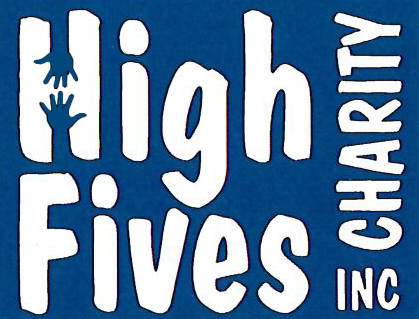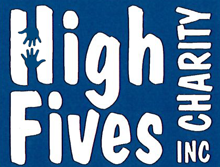Support Family Caregivers
Caregivers give so much of themselves to their Senior loved ones. High Fives Charity offers a wide variety of support services to Family and Professional Caregivers who need assistance or could simply use a break from this hectic lifestyle.
As rewarding and fulfilling as Caregiving is, it can be tough if you don’t put on your oxygen mask first. Statistics prove you can get sicker than the person you are caring for. More accidents occur, more stomach issues, headaches, inability to focus, poor diet, aches/pains, chronic ailments and as time goes by health diagnosis that can be devastating. This all while trying to manage your own life and theirs often results in poor decision making and regrets. “Strength taken to any extreme is a weakness.”
We help by offering solutions you don’t even know you don’t know about and respite you desperately need with Support it can be easier.
We know… we have been there and experienced it ourselves. This in turn helps the Seniors we care for and supports them from a strong community place and not an exhausted individual place!
Family Caregivers caring for loved ones for 5 years or more report their health is fair or poor.
National Alliance for Caregiving in collaboration with AARP; November 2009
Stress of family Caregiving for persons with dementia has been shown to impact a person’s immune system for up to three years after their Caregiving ends thus increasing their chances of developing a chronic illness themselves.
Drs. Janice Kiecolt-Glaser and Ronald Glaser, “Chronic stress and age-related increases in the proinflammatory cytokine IL-6.” Proceedings of the National Academy of Sciences; June 30, 2003.
Nearly three quarters (72%) of family Caregivers report not going to the doctor as often as they should and 55% say they skip doctor appointments for themselves. 63% of Caregivers report having poor eating habits than non-caregivers and 58% indicate worse exercise habits than before Caregiving responsibilities.
Evercare Study of Caregivers in Decline: A Close-Up Look at Health Risks of Caring for a Loved One. National Alliance for Caregiving an Evercare. 2006.
40% to 70% of family Caregivers have clinically significant symptoms of depression while approximately a quarter to half of these Caregivers meet the diagnostic criteria for major depression.
Zarit, S. (2006). Assessment of Family Caregivers: A Research Perspective
A wife’s hospitalization increased her husband’s chances of dying within a month by 35%. A husband’s hospitalization boosted his wife’s mortality risk by 44%.
Nicholas D. Christakis, Professor, Health-care Policy, Harvard Medical School, Boston and Suzanne Salamon, M.D., Associate Chief, Geriatric Psychiatry, Beth Israel Deaconess Hospital, Boston, New England Journal of Medicine, Feb. 16, 2006.
73% of family Caregivers who care for someone over the age of 18 either work or have worked while providing care; 66% have had to make some adjustments to their work life, from reporting late to work to giving up work entirely; and 1 in 5 family Caregivers have had to take a leave of absence.
Caregiving in the United States; National Alliance for Caregiving in collaboration with AARP. November 2009
20 hours per week is the average number of hours family Caregivers spend caring for their loved ones while 13% of family Caregivers are providing 40 hours of care a week or more.
National Alliance for Caregiving in collaboration with AARP. November 2009.

We see who you are beyond the ‘Caregiver’ role and aim to preserve your spirit as much as those you care for.
Our training programs give you the chance to improve your processes in each aspect of caring for your family members. These training sessions cover all levels of Senior living care from hygiene and exercise ideas to progressive disease education. With both online and hands-on courses, you can learn in your own way at a comfortable pace.
Stress is one of the leading concerns for Caregivers. It is an emotionally and physically draining job that leaves you little time to care for yourself. When your energy is drained, your stress increases. That’s why we offer stress management programs for your physical, mental, and emotional health, including Life Coaching, Positive Response Training, and Dance Therapy.
Comments are closed.

